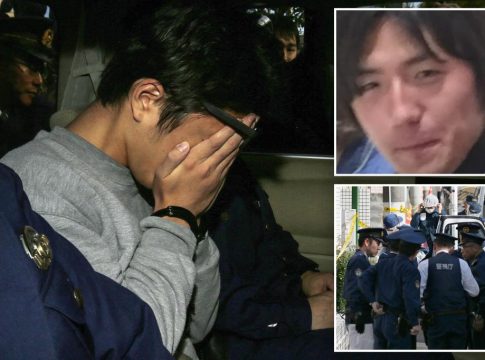Execution of Tokyo’s ‘Twitter Killer’ Marks a Grim Milestone in Japan’s Justice System
Tokyo, Japan — Takahiro Shiraishi, infamously referred to as the "Twitter killer," was executed on Friday, October 13, 2023, following his conviction for the gruesome murders and dismemberment of nine individuals in 2017. The announcement was made by Japan’s Justice Ministry, confirming that Shiraishi was hanged in the Tokyo Detention House under circumstances of strict secrecy.
Details of the Crimes
Shiraishi, 30, was sentenced to death in 2020, having been found guilty of horrific crimes that included not only murder but also the sexual assault of his victims. Investigators revealed that most of his victims—eight teenage girls and women—had publicly expressed suicidal thoughts on social media platforms, particularly Twitter. Under the guise of offering help, Shiraishi lured them to his apartment in suburban Tokyo where he exploited their vulnerabilities.
In a chilling display of violence, he not only murdered these women but also took the life of a boyfriend, aiming to prevent him from reporting the crimes. His actions shocked the public, raising serious concerns about mental health issues and the misuse of social media.
Public Reaction and Government Response
At a press conference, Justice Minister Keisuke Suzuki referred to the case as one that had inflicted "extremely serious outcomes and dealt a major shockwave and unease to society.” He expressed his belief in the necessity of capital punishment, citing a government survey that shows strong public support—despite a gradual increase in opposition—against the backdrop of rising concerns regarding serious crime.
"The execution underscores the gravity of Shiraishi’s offenses, which have left an indelible mark on public safety," Suzuki said.
Context of Capital Punishment in Japan
While capital punishment remains a contentious issue, Japan persists as one of the few developed nations that implements it, along with the United States. This marks the country’s first execution in over a year; the last instance involved an individual convicted of a stabbing rampage that resulted in seven fatalities in a busy shopping district.
Notably, Japan operates under a system where execution details are disclosed only posthumously—executed individuals are often unaware of their death sentence until the morning of their hanging. Currently, there are 105 inmates on death row in Japan, including 49 who have applied for retrials.
The case has reignited the debate over the ethics and transparency of capital punishment in Japan, especially following last year’s acquittal of Iwao Hakamada, the world’s longest-serving death row inmate.
As discussions around judicial processes and human rights continue, Shiraishi’s case illustrates the complexities and emotional turmoil the victims’ families endure, as well as the enduring societal questions surrounding crime prevention and punishment.

Focuses on crime, public safety, and regional events.
Bio: Marcus is a community-based journalist passionate about reporting impactful stories that matter most to readers.

